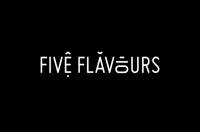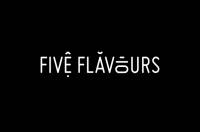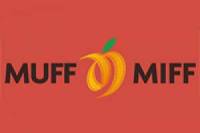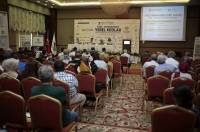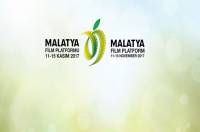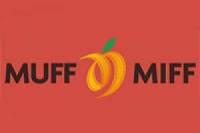The 11th edition of Five Flavours Asian Film Festival will be held on November 15 – 22 in Warsaw, in Muranów and Kinoteka cinemas and in the Museum of Modern Art. The program includes over 40 feature films and nine short films. Eight selected pictures will also be screened in Wrocław, in New Horizons Cinema on November 17 – 23.
The majority of the films will be shown in Poland for the first time, and two pictures from Bhutan will have their international premieres at the Festival. We will also host a number of guests from Asia.
The 2017 edition continues the visual identification based on the Lunar Calendar and zodiac signs. Thus, 2017 is the year of the Fire Rooster.
The festival screens films from South East, East and South Asia and is the only film event in Poland focused primarily on Asian Cinema. For eleven consecutive years, Five Flavours has brought to Poland premiere screenings of the latest and most appealing productions, classics and retrospectives of renowned Asian filmmakers. Previous editions saw the pioneering programs of cinema from Vietnam, Thailand, Taiwan, Malaysia, Singapore, Hong Kong.
The world of Asian cinema is growing and expanding rapidly – artists from the smallest regions of the continent are finding their way to international festival audiences, independent filmmakers unite across borders to speak out about the most difficult subjects, the producers of local blockbusters are more and more successful in competing with global giants. FiveFlavours Film Festival invites everyone to discover and experience this bustling universe. The viewers will have a chance to encounter the wildest productions of Asian pop culture, admire contemplative film poems and engage in discussions about art, politics and challenges of the modern world.
The program of the Festival is comprised mostly of titles unknown in Poland, unavailable in regular distribution. The wide selection includes auteur cinema, as well as high-quality genre cinema; daring works of independent filmmakers and commercial blockbusters which hold a special place in the cinematic landscape of Asia. The previous editions of Five Flavoursincluded pioneering retrospectives of cinema from Vietnam, Thailand, Taiwan, Malaysia, Singapore, and Hong Kong.
The screenings are accompanied by a diverse program of additional events, including meetings with directors and other film guests, critics or experts, debates, workshops.
Like every year, the highlight of Five Flavours program is the New Asia Cinema competition section, presenting fresh voices and outstanding productions that address current issues and broaden the boundaries of film imagination. Films from Indonesia, Taiwan, Hong Kong, Bangladesh or Japan will compete for the Grand Prix of the Festival.
The program includes a section devoted to the cinema of on of the most mysterious Asian countries, the Himalayan Bhutan, and the retrospective of a key new wave filmmaker, one of the most important people in the Hong Kong film industry, Ann Hui. The program includes also a fair share of genre cinema, featured in the section devoted to the avant-garde erotic productions from Japan, and in the Asian Cinerama section, a review of Asian Film Awards winners and nominees. Also devoted to the genre films is the Restored Classics section.
OPENING AND CLOSING FILMS
On November 15, the 11th edition of Five Flavour will begin with the screening of "Our Time Will Come," the new directed by Ann Hui, whose retrospective is a part of this year’s program. The film portrays the local resistance movement in the 1940s, and its relation to modern Hong Kong touches upon one of the most important themes in the director's works – the question of the identity of an individual in a wide, sociopolitical context.
The festival will close with a film directed by the most internationally renown Bhutanese filmmaker and a Buddhist monk, Khyentse Norbu. "Hema Hema: Sing Me a Song While I Wait" ("Hema Hema" means "a long time ago") is a visually stunning, avant-garde drama, combining the traditions of a Shakespearean tragedy with Buddhist tales of death and desire.
COMPETITION SECTION: NEW ASIAN CINEMA
Like every year, the highlight of Five Flavours program is the New Asia Cinema competition section, presenting fresh voices and outstanding productions that address current issues and broaden the boundaries of film imagination. Creative, widely discussed films from Indonesia, Taiwan, Hong Kong, Bangladesh, Malaysia or Japan will compete for the Grand Prix of the Festival.
The winner of the main award (3500 EUR), founded by the director of Polish Film Institute, will be chosen by People's Jury – a group of cinema enthusiasts and Asian cultures fans. NETPAC, the Network for the Promotion of Asian Cinema will also award one of the competition films.
New Asian Cinema Award Nominees:
- Bankoku naitsu / Bangkok Nites, dir. Katsuya Tomita, Japan/Laos/Thailand/France 2016
- Madilim ang Gabi / Dark is the Night, dir. Adolfo Alix Jr, Philippines 2017
- Qing song jia yu kuai / Free and Easy, dir. Geng Jun, Hong Kong 2017
- Yi lu shun feng / Godspeed, dir. Chung Mong-hong, Taiwan 2016
- Munmo Tashi Khyidron / Honeygiver Among the Dogs, dir. Dechen Roder, Bhutan 2016
- KFC, dir. Le Binh Giang, Vietnam 2017
- Live From Dhaka, dir. Abdullah Mohammad Saad, Bangladesh 2016
- Yat nim mou ming / Mad World, dir. Wong Chun, Hong Kong 2016
- Marlina si Pembunuh dalam Empat Babak / Marlina the Murderer in Four Acts, dir. Mouly Surya, Indonesia/Malaysia/Thailand/France 2017
- Mrs K, dir. Ho Yuhang, Malaysia/Hong Kong/China 2016
- Yamato (California), dir. Daisuke Miyazaki, Japan 2016
Contemporary Bhutanese cinema invites the audiences to one of the most inaccessible parts of the world, combining unique local artistic traditions and Buddhist philosophy with an intriguing, ambitious form and interesting generic conventions. The retrospective at FiveFlavours is a rare opportunity to discover the culture of the Himalayan kingdom – both its traditional and modern side.
The Japanese erotic cinema, the so-called pinku eiga, was thriving at the turn of the 1970s and 1980s when major labels underwent a severe financial crisis. The niche, fast-produced flicks have become a shelter for the most avant-garde filmmakers, who have taken the opportunity to experiment and explore the boundaries of cinema, often smuggling political content in-between the sex scenes. The Nikkatsu studio played a special role in this field with its Roman Porno series, highlighting the artistic values of erotic genre and giving the directors unlimited freedom in choosing their topics. In 2016 Nikkatsu announced a reactivation of the cult production label, inviting the most extreme Japanese filmmakers and aiming at a new generation of audience with more and more female viewers enjoying the genre.
A retrospective of a prominent author of the Hong Kong New Wave and the most influential female director in modern Hong Kong cinema. Hui inspects the everyday life and ordinary heroes, using their perspective to show the complex history of Hong Kong, the crossroads between the traditional Chinese culture the reality of a British colony. Memories and flashbacks are used to speak about cultural identity, as well as history and politics shaping it in an individual and social dimension.
For the first time, Five Flavours features a special program curated in collaboration with Asian Film Awards Academy, an institution created by festivals in Busan, Hong Kong, and Tokyo to promote Asian cinema year round, and to support young filmmakers. Asian Cinerama section introduces six major films from the Asian Film Awards to the Polish audience.
Exploring the roots of modern aesthetics of Asian cinema, Five Flavours rediscovers the outstanding achievements of the past decades. It is a unique opportunity to dig into the lesser-known history of cinema and to see restored classics on a big screen. One of the focal points of the section is a screening of a restored masterpiece of the Japanese avant-garde, "Tokyo Drifter" (1966) directed by Seijun Suzuki who died on February 13 of this year.
Special Screenings section showcases the works of prominent filmmakers and the most talked-about premieres of the past year, including new films by directors well-known to the Festival’s audience – Naoko Ogigami and Sion Sono, and debutantes at the beginning of their film careers – participants of the Hong Kong Fresh Wave program, which supports young talents and the development of independent cinema.
During the Festival, we will hold two thematic film marathons. One of them, the Corponight, is dedicated to all-kinds-of-business people. The program includes three films – a crime story from Hong Kong, a melodrama from Japan, and a horror from Thailand – which employ a variety of genre conventions for a metaphorical analysis of the culture of advertising, marketing, and estate developers.
The second special evening s the night with Baahubali. The program includes two parts of the saga devoted to the hero – the biggest success in the history of Tollywood, the cinema of Southern India. The saga became a social phenomenon, gathering a cult following similar to the global "Star Wars" or "Lord of the Rings" craze. The stunning visual effects and the emotional plot amazed audiences all over the world, from China to the US.
The festival is traditionally preceded by Asian Horror Night held in Muranów cinema on October 28. The program includes three horror films: "Satan’s Slaves" from Indonesia, "The Promise" from Thailand, and "Kotoko" from Japan.
ASIAN ACADEMY AND FESTIVAL MEETINGS
A cycle of lectures deepening the understanding of festival films – an opportunity to discover the sociopolitical contexts, aesthetic traditions, the relationship between cinema, everyday life and the current events in Asia. This year, the festival meetings include lectures devoted to both political and aesthetic topics. The invited experts will talk about the culture of Bhutan and Indonesia, political and economic entanglements of modern Hong Kong, the influence of traditional Chinese aesthetics on the modern cinema, and the influence of the recently deceased Japanese master, Seijun Suzuki, on the gangster film genre.
The lectures will be held in the seminar room in the Museum of Modern Art at Pańska street.
Despite the Q&A sessions with festival guests, which take place after the screenings of their films, the program also includes special debates. During the meeting with director Dechen Roden, we will learn more about the film industry in Bhutan. Hong Kong producer Roger Lee will talk about his cooperation with Ann Hui, whose retrospective is a part of this year’s program. A young Polish director, Weronika Milczewska, will talk about making a documentary film in India. At the meeting with traveler Renata Koper, we will listen to Bhutanese tales and legends.
EXHIBITION – DANWEN XING. A PERSONAL DIARY: THE CHINESE AVANT-GARDE 1993–2003
Part of the Festival program is comprised of events connected with the Museum of Modern Art exhibition of the works of a Chinese photographer documenting the life of a Chinese Bohemia of the 1990s. Danwen Xing portraits the generation of artists born during the Cultural Revolution, interested in visual arts, experimental theater, new music scene, and film. One of those filmmakers was Yang Chao, the director of "Crosscurrent" shown at this year’s Five Flavours, and the guest of the Festival.
During the Festival, the audiences can participate in guided tours led by the curator, Magda Lipska, attend a lecture devoted to the Chinese avant-garde movement, and the screenings of two documentary films portraying the life of independent artists ("Diary: Snow, November 21, 1998", dir. Wu Wengwuang, China 1988, "Bumming in Beijing", dir. Wu Wengwuang, China 1990).
VOD
A virtual edition of Five Flavours Film Festival will be available online in at VoD.pl on November 10 – 30. The program includes films from New Asian Cinema competition, some of the hits from last year’s edition of the festival (including "Apocalypse Child" directed by Mario Cornejo, winner of the Grand Prix), short features from the Hong Kong Fresh Wave cycle and other selected festival titles.
RADIO ASIA FESTIVAL
17-21 December 2017
Concerts, workshops, radio dramas and an Asian jam-session. This year marks the third season of Radio Asia – concerts devoted to niche Asian music. The event will take the form of a five-day festival held on December 17-21. Like every year, we present unique artists, who never cease to explore and experiment, merging the traditional and the local with their personal, modern music vision.
The Festival is comprised of five concerts by Asian artists, day-long music workshops, a radio drama devoted to the most interesting phenomena combining the traditional and contemporary scene of the Far East, and an Asian jam-session – an improvised concert, in which everyone can perform along the festival musicians.
Tickets for screenings at Muranów and Kinoteka cinemas (except special events and marathons): 20 PLN
Events in the Museum of Modern Art: free entrance
Tickets for screenings on Monday and every day before 5 PM: 15 PLN
Tickets for all the screenings are available online at piecsmakow.pl and at the Going website.
Tickets are also available in the ticket office of the cinema where the screening is held: Muranów cinema – 22 635 30 78, muranow.gutekfilm.pl, Kinoteka – 22 551 70 70, kinoteka.pl.
All films are screened in original language versions with English and Polish subtitles.
The replica of Five Flavours in Wrocław's New Horizons Cinema (November 17-23) is made up of 8 titles representing all festival sections. The full program is available at kinonh.pl.
> COMPLETE FIVE FLAVOURS PROGRAMME
> SCHEDULE
> PRESS MATERIALS (login: media, password: media)
Organizer: Arteria Art Foundation
Contact:
Emilia Skiba
This email address is being protected from spambots. You need JavaScript enabled to view it.
+48 606 557 279
The project is financially supported by Warsaw City Council, Polish Film Institute, Ministry of Culture and National Heritage of Poland, Japan Foundation, Hong Kong Economic and Trade Office, Central and Eastern Europe, Create HK and HK Film Development Fund. Mobility supported by the Asia-Europe Foundation (ASEF).
The guests of this year's festival include stars of independent cinema and artists awarded at the most important film events worldwide. Their voice is heard ever so loudly on the map of world cinema – they speak about reality using strong, memorable genre conventions, creating a swift narration of the contemporary experiences of their generation, use original, mesmerising metaphors, and create new cinematic canons.
Meetings with the festival guests accompany most of the screenings included in the New Asian Cinema section which is Five Flavours' competition. Mouly Surya and Dechen Roder, directors of "Marlina The Murderer in Four Acts" and "Honeygiver among the Dogs" respectively, will present their films to Polish audience. Both titles will be distributed in Poland under the Five Flavours Films label in 2018.
Other authors to present their films in the competition are directors Daisuke Miyazaki (Yamato (California)), Katsuya Tomita (Bangkok Nites), Ho Yuhang (Mrs K), Le Binh Giang (KFC) and producer Heiward Mak (Mad World).
Polish audience will have a unique chance to discuss Ann Hui's films and Hong Kong cinema with Roger Lee, producer of "Summer Snow", "A Simple Life" and "Our Time Will Come."
Moreover, guests include Naoko Ogigami, director of "Close-Knit" presented in the Special Screenings section, as well as intependent director Yang Chao (Crosscurrent) and screenwriter Lam Wing Sum (Soul Mate) who will present their films among the Asian Cinerama titles.
Discusssions will also accompany screenings of selected films from the Focus: Bhutan section. Besides Dechen Roder, visual artist and director Pema Tshering (In the Realm of Gods), actress Lhaki Dolma (In a Defiled World) as well as director and producer Pema Tshering (Golden Cousin and In a Defiled World) will answer questions about their works.
Five Flavours will also host young Hong Kong filmmakers from the Fresh Wave programme, directors Ashley Cheung and Michelle Hung and DoP Eric Tsang - who will discuss thier short films with the audience.
All films are screened in original language versions with English and Polish subtitles.
> TICKETS
11th Five Flavours Asian Film Festival - Warsaw, 15-22 November, 2017
Organised by: Arteria Art Foundation
Five Flavours is financially supported by Warsaw City Council, Polish Film Institute, Ministry of Culture and National Heritage of Poland, Japan Foundation, Hong Kong Economic and Trade Office, Central and Eastern Europe, Create HK and HK Film Development Fund. Mobility supported by the Asia-Europe Foundation (ASEF).
Main Competition
Michael Apted – Jury President (director, screenwriter; Coal Miner's Daughter, Gorillas in the Mist: The Story of Dian Fossey, The World Is Not Enough)
Christian Berger, AAC (cinematographer; The White Ribbon, By the Sea, Happy End)
Stuart Dryburgh, ASC/NZCS (cinematographer; The Piano, We Were Soldiers, The Secret Life of Walter Mitty)
Stephen Goldblatt, ASC/BSC (cinematographer; Lethal Weapon, Closer, Our Souls at Night)
Karl Walter Lindenlaub, ASC (cinematographer; Rob Roy, Independence Day, Black Book)
Anastas N. Michos, ASC (cinematographer; Man on the Moon, Mona Lisa Smile, The Keeping Hours)
Heather Stewart (Creative director at the British Film Institute)
Polish Films Competition
Brad Silberling – Jury President (director, producer, writer; Casper, City of Angels, A Series of Unfortunate Events)
Andrew Dunn, BSC (cinematographer; The Bodyguard, The Madness of King George, The Butler)
Denis Lenoir, AFC/ASC (cinematographer; Demonlover, Angel, Eden)
Claudio Miranda, ASC (cinematographer; The Curious Case of Benjamin Button, Life of Pi, Only the Brave)
Mark H. Weingartner, ASC (visual effects supervisor; Inception, The Twilight Saga: Breaking Dawn, Interstellar)
Student Etudes Competition
Phillip Noyce – Jury President (director, screenwriter; Newsfront, Patriot Games, Rabbit-Proof Fence)
Markus Förderer, BVK (cinematographer; Hell, I Origins, Independence Day: Resurgence)
Magdalena Górka, PSC (cinematographer; Paranormal Activity 3, Jack Strong, An Ordinary Man)
Steven Poster, ASC/CSC (cinematographer; Rocky V, Donnie Darko, Amityville: The Awakening)
Michelle Schumacher (director, actress; The Floor, The Boy, I'm Not Here)
Documentary Features Competition
Jay Rosenblatt - Jury President (director, producer, editor; Human Remains, Phantom Limb, The Darkness of Day)
Sheila Curran Bernard (writer, producer, director; Slavery by Another Name, Jerusalem, Inside Story)
John Davey (cinematographer; La danse, Boxing Gym, In Jackson Heights)
Karen Konicek (Executive producer and director of distribution for Zipporah Films)
Kristine Samuelson (director, producer; Arthur and Lillie, Underground Zero, Tokyo Waka)
Documentary Shorts Competition
Steven Okazaki - Jury President (director, screenwriter, producer; Days of Waiting, White Light/Black Rain: The Destruction of Hiroshima and Nagasaki, Black Tar Heroin: The Dark End of the Street)
Larry Blake (Supervising sound editor, re-recording mixer, post-production supervisor; Out of Sight, Traffic, Magic Mike)
Louis-Philippe Capelle, IMAGO (cinematographer; Black Island, Pardon Cupidon,Innocents Abroad)
Rainer Klausmann, BVK/SCS (cinematographer; The Experiment, The Baader Meinhof Complex, In the Fade)
Lisa Wiegand, ASC (cinematographer; Dollhouse, American Crime, Chicago Justice)
Music Videos Competition
Wayne Isham – Jury President (director, cinematographer; Metallica's Enter Sandman, Bon Jovi's You Give Love a Bad Name, Britney Spears's Piece of Me)
Lois Burwell (make-up artist; Braveheart, Saving Private Ryan, The Last Samurai)
Martin Coppen (cinematographer; Marilyn Manson's The Dope Show, Sarah McLachlan's Fallen, Lenny Kravitz's Fly Away)
Richard N. Gladstein (producer; Reservoir Dogs, The Bourne Identity, Finding Neverland)
Ed Lachman, ASC (cinematographer; Far from Heaven, Carol, Wonderstruck)
Directors' Debuts Competition
Jim Stark – Jury President (producer; Mystery Train, The Living End, Factotum)
Richard Andry, AFC (cinematographer: La Java des ombres, Saigon Eclipse, Marie Antoinette)
Andrzej Krakowski (director, screenwriter, producer; The California Reich, Looking for Palladin, Campfire Stories)
Márta Mészáros (director, screenwriter; Adoption, Diary for My Children, The Seventh Room)
Charles Minsky, ASC (cinematographer; Pretty Woman, The Producers, Mother's Day)
Cinematographers' Debuts Competition
Roberto Schaefer, ASC/AIC – Jury President (cinematographer; Finding Neverland, The Paperboy, Geostorm)
Jim Plannette (gaffer; E.T. the Extra-Terrestrial, Syriana, The Artist)
Janusz Gauer, PSC (cinematographer; Deja vu, Call Me Rockefeller, V.I.P)
Franziska Stöhr (curator, lecturer)
Stephen Lighthill, ASC (cinematographer; Gimme Shelter, Berkeley in the Sixties, Nash Bridges)
First Look - TV Pilots Competition
Jan Roelfs – Jury President (production designer; Gattaca, Alexander, Ghost in the Shell)
Anna Katharina Brehm (producer, organizer of Seriencamp Conference)
Len Collin (writer, director; Holby City, Eastenders, Sanctuary)
Eric Kress, DFF (cinematographer; The Girl with the Dragon Tattoo, Borgen, Colossal)
Crescenzo Notarile, ASC (cinematographer; Ghost Whisperer, CSI: Crime Scene Investigation, Gothami)
Advertising Spots Competition
Bartek Cierlica (cinematographer, director; Grobari)
Artur Jabłoński (E-marketing consultant, trainer)
Jan Majle (copywriter, creative director)
A new batch of 6 promising TV series projects will participate in the 2018 edition of MIDPOINT TV Launch. Already on Sunday, their 9 month development process begins at a residential workshop in Slovak Republic.
6 projects from Belgium, Czech Republic, Germany, Greece and Serbia have been selected following an open call, and the participating teams of writers, directors and producers will go through an intensive 9 month process taking their original ideas to the market. After the workshop in Slovakia, next stop is in Czech Republic during Finale Plzen in April '18 and then finally in Sarajevo during the CineLink market in August '18.
Get to know all projects and participants here.
Tutors
For the first workshop, the teams will by guided by Core Tutors Gabor Krigler, Creative Executive at HBO Hungary, and Maggie Murphy who is Head of Shaftesbury U.S. and associate professor at UCLA. Also onboard are Guest Tutors Giacomo Durzi, Ben Harris and Steve Matthews.
Program
The main program consists of group meetings and individual consultations with both the Core Tutors and Guest Tutors, as well as analyses of TV series case studies. In between these closed sessions, the open lectures offer insight into the following subjects:
Sunday 5.11. – 11.30
/ Pilots – The Alpha and the Omega – by Maggie Murphy
Monday 6.11. – 17.30
/ Why This? Why Now? Why Me? – by Gabor Krigler
Wednesday 8.11. – 17.30
/ The Specific Narrative of TV Series – by Giacomo Durzi
Thursday 9.11. – 14.00
/ The DNA of Television Series – by Ben Harris
See the full program here.
Awards
The MIDPOINT TV Launch awards which will be handed out at the end of the third workshop in 9 months' time are:
The HBO Europe Award to the best project – a financial award
The C21 Media Award to one participating producer – a one-year subscription to C21's content
C21 Media offers TV professionals a valuable insight into the European and international TV industry. Subscribe to its content and events here.
MIDPOINT TV Launch is supported by Creative Europe – MEDIA Programme of the European Union, Ministry of Culture of the Czech Republic, Czech Film Fund, Slovak Audiovisual Fund, International Visegrad Fund, and presented in collaboration with HBO Europe, Finale Plzen, Sarajevo Film Festival – CineLink Industry Days, CHARACTER – Film Development Association, Serial Eyes, C21 Media, Barrandov Studio & AMU.
Nacer Khemir, the master of epic films, will grace the 7th Malatya International Film Festival
Festivals 23-10-2017
The veteran Tunisian director Nacer Khemir, who reflects the traditional and mystical elements of the North African, Arabic and Persian cultures in his films while creating a fairy world inspiring the audience, will grace the 7th Malatya International Film Festival as the jury president of the International Feature Film Competition. Khemir will also be presented with the Honor Award at the opening ceremony on the evening of November 9th. And the remastered copy of his feature debut, Wanderers of the Desert (1984), which was screened at the Venice Film Festival’s Classics section this year, will also be screened at the festival.
Khemir’s films are compared to “One Thousand and One Nights,” and interpreted as the adaptations of the story tradition of the Arabic and Persian cultures, as well as the mystical philosophy. Besides being a filmmaker who won awards at prestigious film festivals such as Locarno, Cinema du Reel, Valencia, Kartaca, Ouagadougou, and Nantes, he was also honored with an award under Henri Langlois’s name in Paris, who was a legendary figure in the history of cinema. Khemir is a world-renowned director for his films “The Dove’s Lost Necklace” and “Bab’Aziz” but he’s also a versatile artist mastered in theater, literature, calligraphy and sculpture, whose 11 books have been published in France.
Khemir was born in Korba, Tunisia in 1948. He received the UNESCO scholarship to study film in Paris. He gained his first international artistic reputation with his book, L’Ogresse (1975), in which he calligraphed his researches and stories on the storytellers in the Medina of Tunis. In 1980, his calligraphic artworks were exhibited at the Centre Pompidou in Paris.
Every night for a month in 1982 and 1988, he told the stories of the Thousand and One Nights with his own interpretation at the National Theatre in Chaillot, on a stage designed by Yannis Kokkos. Before he began his film career, he was a storyteller on stage.
Besides literature, he also worked on Islamic philosophy and mysticism. In 1976, Khemir made his directorial debut with the medium-length film “L’Histoire du pays du bon dieu,” which manifests the director’s philosophical tendency through the protagonist seeking the borders of an unknown country.
In 1984, he made “Wanderers of the Desert,” the first film of the trilogy which would later be called “Desert Trilogy.” The film won the Golden Ballon at Nantes in 1984, and the Golden Palm at Valencia in 1985. The second film of the trilogy, “The Dove’s Lost Necklace,” which was filmed in 1991, won the Golden Bayard for Best Artistic Contribution at the Namur International Festival of French-Speaking Film, and the Special Jury Award at the Locarno International Film Festival. The Dove’s Lost Necklace is a fairy tale in which Hasan, a calligrapher’s apprentice enchanted by the image of the Princess of Samarkand, seeks the 60 names of love. Bab’Aziz, the final film of the trilogy which holds the audience spellbound with its fascinating story, won the East-West Coexistence Award at the Beirut Film Festival and the Crystal Simorgh Award at the Fajr Film Festival in 2005, and the Golden Dagger for Best Film at the Muscat Film Festival in 2006.
The Official Selection of The 7th Malatya International Film Festival Has Been Announced
Festivals 18-10-2017
The press conference of the 7th Malatya International Film Festival was held on October 10th, Tuesday, at Shangri-La Bosphorus Hotel. The conference was attended by the Governor of Malatya Ali Kaban, Mayor Ahmet Çakır, Festival Director Suat Köçer, Mayor of Yeşilyurt, Mayor of Battalgazi, Festival’s Executive Committee President Ertan Mumcu, National Jury President Hülya Koçyiğit, Program Director Alin Taşçıyan, Malatya Film Platform Director Sermin Çakmak Afşin, Belkıs Özener, the festival sponsors and many press members.
The competition films, 12 projects shortlisted for Malatya Film Platform, official selections, events and the festival’s surprises were announced at the press conference.
First speaker at the conference was Governor Kaban, who underlined the great contributions of the festival to the Turkish cinema and Malatya.
“Malatya International Film Festival is a promising festival which has been improving since its first edition and is carrying the current culture into the future. Our main duty is to support the festival and cinema. And we’ll continue to carry out this duty for a greater recognition of MIFF at both national and international levels,” Mayor Çakır said.
And the Festival Director Suat Köçer announced the festival’s innovations and its official selection.
NATIONAL COMPETITION JURY PRESIDENT: HÜLYA KOÇYİĞİT
The national film competition line-up was announced by the veteran actress Hülya Koçyiğit, the National Feature Film Competition Jury President of the 7th Malatya International Film Festival.
NATIONAL FEATURE FILM COMPETITION:
Grain / Semih Kaplanoğlu
More / Onur Saylak
Minus One / Orhan Oğuz
Something Useful / Pelin Esmer
The Bank of Broken Hearts / Onur Ünlü
Murtaza / Özgür Sevimli
Yellow Heat / Fikret Reyhan
Brothers of Silence / Taylan Mintaş
Serial Cook / Ümit Ünal
Stone / Orhan Eskiköy
Confrontation / Nejla Demirci
Zer / Kazım Öz
NATIONAL SHORT FILM COMPETITION:
The All Seeing Blind / Nuri Cihan Özdoğan
Warm In The Cold / Durmuş Soykut
Ground Level / Ayris Alptekin
The Theory of Almodovar / Halit Eke
The Well / Rıdvan Yavuz
Refugee /Ramazan Kılıç
Toprak / Onur Yağız
Return From The Hunt / Recep Çavdar
The Sacrifice / Muzaffer Mehmet Çağlar
The Valley / Can Erkan
Wicked Girl / Ayçe Kartal
Story of A Job Interview / Alkım Özmen
The festival’s international short and feature film selections will attract people from all walks of life.
“Every festival includes the most distinguished films in their selections, but Malatya International Film Festival aims a larger audience. We chose the films that will attract people from all walks of life,” Alin Taşçıyan said, and announced the international competition films.
INTERNATIONAL FEATURE FILM COMPETITION:
The Blockage / Mohsen GHARAEI
Centaur / Aktan Abdykalykov
Pomegranate Orchard / Ilgar Najaf
Pela Janela / Caroline Leone
Dede / Mariam Khatchvani
Cargo / Gilles Coulier
Son Of Sofia / Elina Psikou
Grain / Semih Kaplanoğlu
Blue Silence / Bülent Öztürk
More / Onur Saylak
Mothering / Roqiye Tavakoli
Life and Nothing More / Antonio Méndez Esparza
INTERNATIONAL SHORT FILM COMPETITION:
The All Seeing Blind / Nuri Cihan Özdoğan
Hofre Moshtarak / Asma Ebrahimzadegan
Voice / Darioush Najafi Gol (Arturan)
Misappropriation / Ana Maria Ferri
Night Guest / Ziregul Kubandıkkızı
Nest / Ünal Altunyaymak
Summer Time With My Mother / Diana Lu
Arin / Mizgin Müjde Arslan
Once Upon a Time in Odessa / Vladek Zankovsky
Verge / Selman Nacar
Malatya Film Platform will highly contribute to the film production
12 shortlisted films for the first edition of Malatya Film Platform have been announced by the platform’s director Sermin Çakmak Afşin. “We had a few main motives while planning the first edition of Malatya Film Platform. Workshops will be held between 11-15 November. The platform will be attended by Fabienne de Aguado, one of the founders of the Centre for Cinematographic Scripts (CÉCI) and a tutor at Torino Film Lab, John Morrissey, the producer of American History X, awarded film director Erdem Tepegöz, and Etienne de Ricaud, the founder of Caractères Productions,” Afşin said.
Shortlisted Projects for the Malatya Film Platform:
Shortlist for Ertem Eğilmez Family Films Production Support Award:
- AMERİKA OTOBÜSÜ/DERYA DURMAZ
- ALİ’NİN TABİATI/LEVENT ÇETİN
- CEVİZ AĞACI/FAYSAL SOYSAL
- JULİA’YA AŞIK OLMAK/ALP KAMBER
- KAPLUMBAĞA TERBİYECİSİ/ORHAN İNCE
- OKUL TRAŞI/FERİT KARAHAN
Shortlist for TRT Pre-production Support Award:
- ANADOLU PARSI / ORÇUN KÖKSAL
- KAPAN / SEYİD ÇOLAK
- MAVZER / FATİH ÖZCAN
- ASİ VE MAVİ / RUHİ KARADAĞ
- BİRLİKTE ÖLECEĞİZ / MELİK SARAÇOĞLU, HAKKI KURTULUŞ
- YURT / NEHİR TUNA
NATIONAL FEATURE FILM COMPETITION JURY
Hülya Koçyiğit (Jury President)
Ebru Ceylan
Taner Birsel
Hayk Kirakosyan
Selim Evci
NATIONAL SHORT FILM COMPETITION JURY
Serdar Sidar Karakaş
Fırat Sayıcı
Sinan Sertel
Yonca Ertürk
Zeynep Gülru Keçeciler
INTERNATIONAL FEATURE FILM COMPETITION JURY
Nacer Khemir (Jury President)
Seçil Büker
Fatemah Motamed-Aria
Intishal Al Timimi
Edvinas Pukšta
INTERNATIONAL SHORT FILM COMPETITION JURY
Nefise Özkal Lorentzen
Reshad Strik
Gulbara Tolomushova
Deniz Eyüboğlu Aydın
Ettienne De Ricaud
MALATYA FILM PLATFORM JURY
Elif Dagdeviren
Serkan Yildirim
Cemil Yavuz
Nazif Tunc
Atalay Tasdiken
NETPAC JURY:
Jeffrey jeturian
Maja Bogojevic
Sabire Soytok
EVALUATION COMMITTEE FOR KEMAL SUNAL PEOPLE’S CHOICE AWARD
Asım Demirkök Gazeteci
Dilaver Gür
Abdullah Ergün
SİYAD JURY:
Coşkun Çokyiğit
Münir Emre Göker
Rıza Oylum
THE HONOR AWARDS
The festival director Suat Köçer announced that the honor awards that couldn’t be presented last year due to the postponement of the festival will be presented this year. The festival will honor Turkish cinema’s three veteran figures: Unforgettable veteran actor Halil Ergün, who starred in many notable films; Belkıs Özener, who embellished Yeşilçam with her unforgettable songs; Mesut Uçakan, veteran film director who gained a genuine place in Turkish cinema with his unique approach and films.
The symposium was held on 22-23 September, and the first session, which took place on September 22nd, was attended by Mayor Ahmet Çakır, Deputy Secretaries-General of the Municipality, Festival Director Suat Köçer, Deputy Mayor of Battalgazi, Vice Rector of İnönü University, AKP Vice Provincial Head, several officials, university students, and the cinema enthusiasts in Malatya.
In his opening speech, the Festival Director Suat Köçer emphasized the importance of discussing a major issue of 100-year-old Turkish cinema at the 7th edition of MIFF, and expressed his great joy for the participation of many esteemed film professionals. He also added that the content of the symposium will be compiled in a book, and many surprises are in store at this year’s Malatya International Film Festival.
Mayor Çakır also delivered a welcoming speech, noting that the symposium will contribute a great deal to the festival with the extensive discussion on indigenousness, which is an important concept as per the identity arguments in Turkish cinema.
Indigenousness Lies in Art, Not in Academy
The first session entitled “Turkish Cinema and Indigenousness” was moderated by İshak Aslan. “Discussion of indigenousness is associated with universalism,” Aslan said. Following his speech, Prof. Dr. Kurtuluş Kayalı took the floor. In his speech entitled “Indigenousness or Localism in Turkish Cinema?”, Kayalı reminded that the indigenousness emphasis, which was initiated by Kemal Tahir, was transferred to the silver screen by the first generation film directors, and that the academics’ quest for indigenousness is relatively a thing of the past. In this regard, “The values of this society lie in art, not in the academic texts,” he said. The symposium continued with Barış Saydam’s disquisition entitled “Transition From National History Thesis to National Cinema: A Panorama of the First Half of the 1950s,” and ended with Researcher Mesut Bostan’s speech. Bostan remarked that Kemal Tahir’s concerns about indigenousness have been thoroughly revealed in Lütfi Akad’s films.
The Most Prominent Influencer: Kemal Tahir
The second session entitled “Pursuits in Yeşilçam” was moderated by Abdulhamit Güler, who noted that indigenousness is an important essential not only in cinema, but also in many aspects of life. Following his speech, Festival Director Suat Köçer took the floor. “Knowledge of Kemal Tahir’s literature is equivalent to the knowledge of a certain period of Turkey. Beyond being a novelist and a writer, Tahir was a significant ideologist who influenced the generations with his theses and ideas. Kemal Tahir’s works lead the way to indigenousness concept, and particularly the young filmmakers should benefit from the ideas of the great thinker,” Köçer said. The next speaker of the session, director Mesut Uçakan, addressed the spiritual pursuits and the National Cinema endeavor in Yeşilçam.
“The faith phenomenon underlies the indigenousness argument, and in this regard, the idea of National Cinema is a fundamental insight that should be emphasized,” Uçakan said.
In his speech entitled “Halit Refiğ and the National Cinema Struggle”, the final speaker, film director Nazif Tunç, addressed Halit Refiğ’s endeavors in the indigenousness concept. “Refiğ scrutinized not only the national cinema struggle and the issues of our cinema, but he also made the most significant films of the national cinema movement; “Gurbet Kuşları”, “Bir Türk’e Gönül Verdim”, “Harem’de Dört Kadın.”
Sustainability Is The Answer
The second day of the symposium started with the session entitled “In Between Theory and Practice”, moderated by Ass. Prof. Dr. Hediyetullah Aydeniz. In his speech entitled “Cinema Researches and Indigenousness/Localism in Turkey”, Researcher Dr. Yusuf Ziya Gökçek stated that a corporate disintegration exists in the cinema studies in Turkey, and the studies on Turkish cinema theory do not suffice.
“Ayşe Şasa had a unique critical approach although the producers and the directors interfered with her scenarios back then,” Researcher Meltem İşler Sevindi stated in her disquisition entitled “Indigenousness in Turkey: Through the Example of Ayşe Şasa.” In his speech entitled “The Reflections of Style and Traditional Arts in Cinema,” film director Derviş Zaim said that the traditional styles must be reformed in accordance with today’s conditions, adding that the arguments evolved around the indigenousness concept in the 60s did not offer any concrete results, and sustainability is the only solution.
No Insight Into the Rural
The fourth session entitled “Turkish Cinema After the 90s” was moderated by İhsan Kabil, and started with Hilal Turan’s speech, “Insight Into the Rural; Cinema of Ahmet Uluçay.”
“Uluçay’s legacy advises us to address the issue through authenticity first, not strong assertions,” Turan said. In his speech entitled “The Connotation of Folk Literature and Saga Tradition in Cinema,” Reis Çelik noted that the Turkish cinema is not nourished enough by the folk literature, and the ancient stories, sagas and tales should be adapted to cinema through a modern approach.
As the final speaker, Atalay Taşdiken delivered his speech entitled “Indigenousness in New Turkish Cinema.” “Recent Turkish cinema fails at providing a true insight into the rural.
A director’s depiction of the rural as an unlivable place is an outsider look, and making a realistic film about the rural is underrated due to the popular sense ,” Taşdiken said.
Through The Example of Iranian Cinema
Iranian films were discussed in the last session moderated by Faysal Soysal. In his speech entitled “A Comparative Analysis: Depiction of the Rural and the Rural People & Turkish Cinema,” Rıza Oylum emphasized that the Iranian filmmakers successfully depict the rural concept through personal stories, while the Turkish filmmakers can’t. The symposium continued with the speech of Majid Sheikh Ansari, Advisor at The Fajr International Film Festival. “In order to gain a place in the world cinema, the existing style must be renovated and diversified. Iranian filmmakers have managed to adapt an original style by seeking answers to the unanswered questions. And Turkish cinema can also succeed at this through an indigenous approach,” Ansari said.
In his closing speech, Suat Köçer said that the productive discussions at the symposium will contribute a great deal to the indigenousness arguments.
Submissions to the first edition of Malatya Film Platform ended on September 1st, Friday. 108 projects have been submitted, including screenplays by awarded filmmakers along with debut projects.
Turkish Cinema will gain new talents through Malatya Film Platform, Mayor Ahmet Çakır said. Expressing his great joy at seeing such a high demand for the platform, he also added that the platform aims to support the national cinema and encourage the film projects based on Turkey’s ancient values.
Festival Director Suat Köçer said that the Malatya Film Platform will provide the directors and producers with opportunities to develop their projects, and it will be an important meeting point for the national filmmakers. He also noted that along with the awards, directors and producers of the 10 shortlisted films will get to work with experienced film professionals during 4 days on project development, pitching and co-productions. Subsequently, one of the two films selected by the jury will be awarded with 100,000 TL prize money as Ertem Eğilmez Family Films Production Support Award, while the other one will receive TRT’s Preemption Support. With the participation of many national and international film professionals; talk sessions, workshops, master classes and various events will be held as part of the Malatya Film Platform.
Malatya Film Platform, which aims to provide pre-production support for the film projects as well as hosting discussions on current co-production opportunities with the participation of film professionals, will be held between 11 and 15 November, 2017, as part of the 7th Malatya International Film Festival.
Modern Russian cinema’s acclaimed director Andrey Zvyagintsev’s award-winning films and his latest film “Loveless” which won the Jury Award at the 2017 Cannes Film Festival will be screened at the 7th Malatya International Film Festival.
Award-winning director Andrey Zvyagintsev’s films focusing on rulership and human relations will meet the cinemagoers at the festival. The director has carried out Russia’s impressive cinema tradition to the 2000s, pioneering the new generation of Russian filmmakers. His films “The Return”, “The Banishment”, “Elena”, “Leviathan” and “Loveless” will be screened at the 7th Malatya International Film Festival.
His first feature film The Return (2003) had its world premiere at the 60th Venice Film Festival, making a tremendous impression worldwide, and won five awards including the Golden Lion. Zvyagintsev impressed the European cinema as a director pursuing and revamping the great Russian director Andrei Tarkovsky’s film style. His films focus on the effects of government and religion concepts on people as a result of the changing doctrine. As a director who has witnessed today’s Russia in the past 15 years, Zvyagintsev is famous for his elegant film language and aesthetics, as well as his social criticism.
Award-winning “Loveless” to be screened at the festival
Zvyagintsev’s latest film “Loveless”, which won the Jury Award at this year’s Cannes Film Festival, will also be screened at the festival. The film brings to mind the opening line of the great Russian author Tolstoy’s Anna Karenina: “All happy families are alike; each unhappy family is unhappy in its own way.” The film tells the story of a couple going through a divorce, who want to give up their son in order to enjoy a new life with their new partners. However, the disappearance of little Alyosha lead them to team up, and look for him with the volunteers and the police. The film provides an insight into Russia’s recent history and social structure through a series of metaphors.
Zvyagintsev’s internationally acclaimed debut film The Return (2003) is part mystical tale, part eerie family drama. The story concerns a father who suddenly returns home after vanishing 12 years earlier, and takes his two sons to an island in the lake they live by, while his mystery remains unresolved. The film is a visual feast with its extraordinary imagery inspired by painting, and the references to Tarkovsky.
The director’s second film The Banishment (2007) competed at the 60th Cannes Film Festival, and gained Konstantin Lavronenko the Best Actor Award for his role as the father. The visually stunning film is a loose adaptation of The Laughing Matter, a novel by William Saroyan, an extremely disturbing family drama on deception and revenge.
Elena (2011) won the Jury Award at the Cannes Film Festival’s Un Certain Regard section, and gained the director a wider audience. The film addresses the human soul and people’s soft spots universally, while manifesting the ever-growing gap between the rich and the poor in Russia. The story concerns the struggle of a poor woman who marries a rich man and becomes his maid in order to protect her family.
Leviathan (2014) made a big international splash, winning the Best Screenplay Award at the 67th Cannes Film Festival and the Best Foreign Language Film award at the 72nd Golden Globe Awards, and was nominated for the Best Foreign Language Film at the 88th Academy Awards. In Leviathan, Zvyagintsev satirizes the coalition of the political power and the church through a property case which stands in stark contrast to the country’s communist past. Likened to “church government” by the 17th-century philosopher Thomas Hobbes, Leviathan is an invincible sea monster referenced in the 41st chapter of the Book of Job, and sometimes depicted as a whale. The visually stunning film tells the story of Nikolay, who tries to save his ancestral home located in a town harboring a whale skeleton from confiscation, in the wittiest way possible.
High demand for the 7th Malatya International Film Festival’s competition sections.
The “National Feature Film Competition”, “International Feature Film Competition”, “National Short Film Competition” and “International Short Film Competition” sections of the 7th Malatya International Film Festival are in high demand. The submission deadline is September 15th.
MANY AWARD CATEGORIES IN FEATURE FILM COMPETITIONS!
Fiction, documentary and animation films are eligible for submission to the festival’s National Feature Film Competition which aims to screen new and distinguished films, encourage artistic film productions, and make Turkish cinema even more significant at both national and international levels. Submissions will be accepted via the festival’s official website until 17:00 on September 15th. The Best Film will be awarded with the Crystal Apricot Award and 100,000 TL prize money.
Other award categories in National Feature Film Competition are:
Best Director, Best Screenplay, Best Cinematographer, Best Actress, Best Actor, Best Film Editing, Best Art Direction, Fahri Kayahan Best Original Score, Kemal Sunal People’s Choice Award (Best Film), Special Jury Award (Best Film), Best Supporting Actress, Best Supporting Actor, Best Promising Actress, Best Promising Actor, Contribution to Turkish Cinema Award.
FILM SUBMISSIONS FROM ALL OVER THE WORLD
There’s a high demand for International Feature Film and Short Film competitions as well. Many films from all over the world have been submitted since June. The Best Film in the International Feature Film Competition will be awarded with $15,000, while the winner of the International Short Film Competition will receive $1,000.
A CLOSELY CONTESTED COMPETITION
High demand for the competition sections heralds a closely contested competition, Festival Director Suat Köçer said. He also added that the submissions peaked as the deadline approaches, and the innovations in the National Short Film Competition and the first edition of International Short Film Competion are anticipated to jazz up the festival. Top 10 films in the Short Film Competition will be screened in DCP format at the main theaters before the feature film screenings, and three films will be awarded instead of one.
Submissions for the 7th Malatya International Film Festival’s competition sections will close on September 15th, at 17:00. Submissions are accepted via http://www.malatyafilmfest.org.tr.

